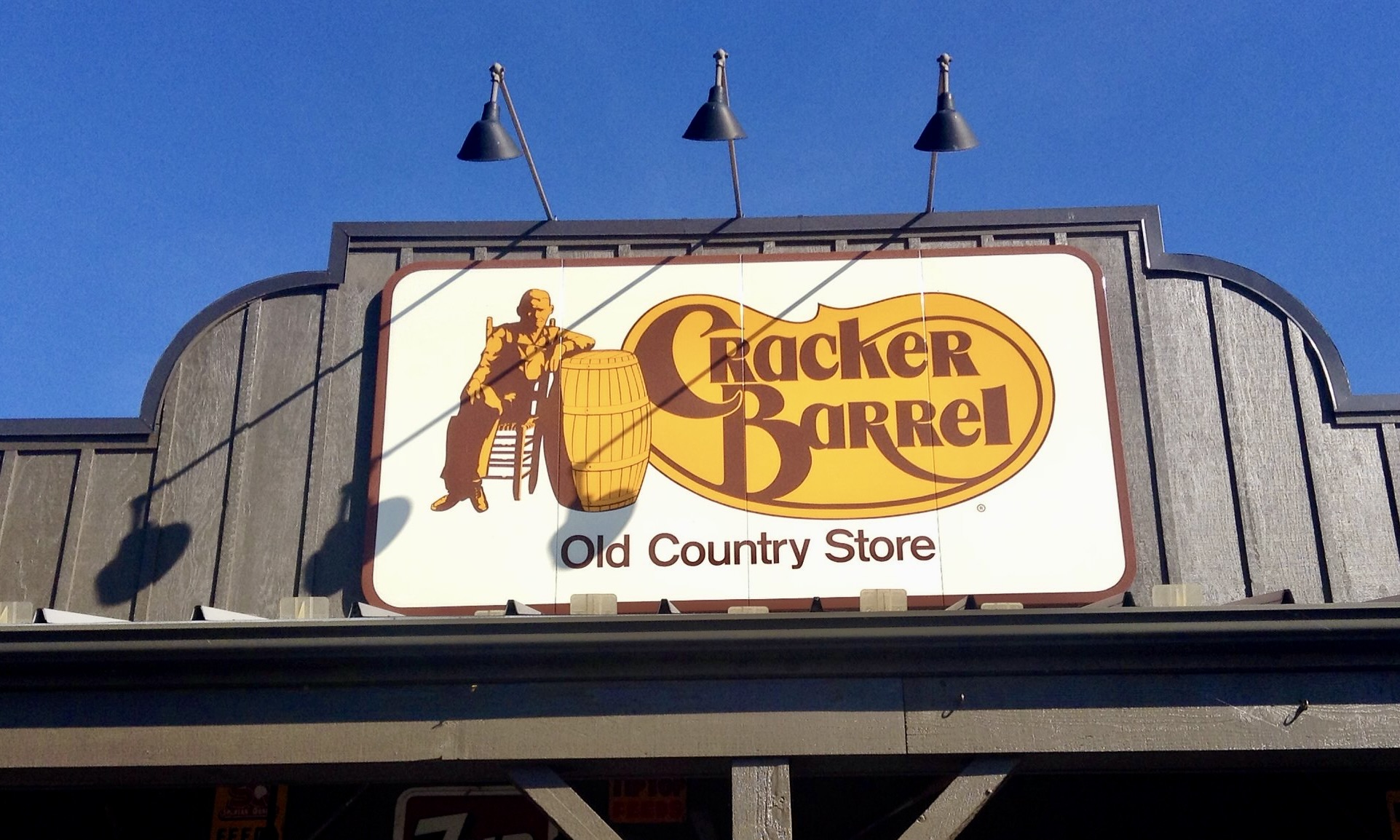Business
Cracker Barrel Faces Backlash as Co-Founder Critiques Leadership

Cracker Barrel, the iconic American restaurant chain known for its Southern comfort food, is embroiled in controversy following a contentious rebranding effort. The chain’s co-founder, Tommy Lowe, has publicly criticized the company’s leadership, claiming they have lost touch with their core clientele. This backlash comes after a £570 million ($768 million) modernization initiative, which aimed to attract a younger audience but has instead resulted in a significant decline in market value.
Lowe’s comments come in the wake of a rebranding that included a new logo and updated store designs. The changes, intended to modernize the brand image, triggered accusations of cultural insensitivity and led to an estimated market value decline of over £115 million ($154 million). Customers reacted strongly against the new logo, which replaced the beloved image of a man leaning on a barrel. Many described it as “corporate” and “soulless,” according to reports from the New York Post.
Under the leadership of CEO Julie Felss Masino, who took the helm in late 2023, the company faced mounting criticism for its direction. In a viral interview on Fox Business, Lowe expressed his disapproval, stating, “The CEO knows very little about the company. Taco Bell is not Cracker Barrel. What does Taco Bell know about country food?” He emphasized that the board appears disconnected from the experiences of its customers, suggesting that many have not engaged with the brand’s traditional offerings.
Lowe further denounced the £570 million ($768 million) rebranding as a “waste of money,” advocating instead for an emphasis on food quality, service, and hospitality. He pointedly remarked, “Do you ever try to eat grits cold? That’s the problem, not the logo.” His critique highlights a growing concern that the brand’s leadership may be prioritizing trendy updates over the values that originally endeared the restaurant to its loyal patrons.
Questions about Masino’s suitability for the role have arisen, given her background in fast-food operations at Taco Bell and Starbucks. Industry analysts argue that Cracker Barrel’s traditional customer base values consistency and nostalgia, making them wary of drastic changes.
In response to the backlash, Cracker Barrel has begun restructuring its leadership team. The company recently dismissed senior vice president Cammie Spillyards-Schaefer and reinstated Thomas Yun to lead food innovation and menu strategy. These moves suggest a potential shift toward aligning the brand more closely with its heritage.
The controversy surrounding Cracker Barrel serves as a cautionary tale for other heritage restaurant brands. Analysts warn that modernization efforts must strike a balance between innovation and authenticity to avoid alienating long-standing customers. Similar challenges have been observed in traditional British chains, such as Wetherspoons and Toby Carvery, where diners expect a familiar and value-driven experience.
As customer sentiment remains divided, Cracker Barrel’s leadership is under increasing pressure to restore trust and reaffirm the brand’s commitment to homestyle dining and Southern hospitality. The path forward for this beloved institution will likely require a careful reevaluation of its identity and connection with its clientele.
-

 World3 days ago
World3 days agoCoronation Street’s Shocking Murder Twist Reveals Family Secrets
-

 Entertainment4 months ago
Entertainment4 months agoKate Garraway Sells £2 Million Home Amid Financial Struggles
-

 Entertainment3 months ago
Entertainment3 months agoAnn Ming Reflects on ITV’s ‘I Fought the Law’ Drama
-

 Health3 months ago
Health3 months agoKatie Price Faces New Health Concerns After Cancer Symptoms Resurface
-

 Entertainment3 weeks ago
Entertainment3 weeks agoCoronation Street Fans React as Todd Faces Heartbreaking Choice
-

 World4 weeks ago
World4 weeks agoBailey Announces Heartbreaking Split from Rebecca After Reunion
-

 Entertainment6 days ago
Entertainment6 days agoTwo Stars Evicted from I’m A Celebrity Just Days Before Finale
-

 World6 days ago
World6 days agoKevin Sinfield Exceeds Fundraising Goal Ahead of Final Marathons
-

 Entertainment3 months ago
Entertainment3 months agoCoronation Street’s Carl Webster Faces Trouble with New Affairs
-

 Entertainment3 months ago
Entertainment3 months agoWhere is Tinder Swindler Simon Leviev? Latest Updates Revealed
-

 Entertainment4 months ago
Entertainment4 months agoMarkiplier Addresses AI Controversy During Livestream Response
-

 Science2 months ago
Science2 months agoBrian Cox Addresses Claims of Alien Probe in 3I/ATLAS Discovery











